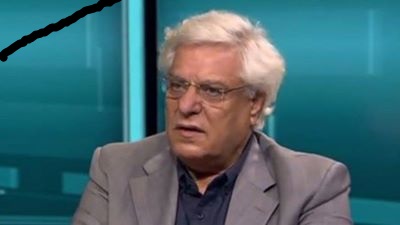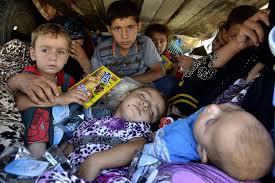
This article is part of a collection of tributes to the late Faleh A. Jabar. It was first published in Banipal 61, A Journey in Iraqi Fiction in Spring 2018.
I first met Faleh in the early 1990s, introduced and highly recommended by my friends Peter and Marion Sluglett, prominent Iraq scholars, with a view to starting a PhD at Birkbeck. I took an immediate liking to Faleh, personal charm and humour, and a depth of knowledge, culture and intellect. We shared interests in Arabic literature, music and song, and Iraqi folk culture and religion, and had many entertaining discussions and performances with friends and his wife, the writer Fatima al Mohsen. Faleh, of course, was very well connected and much appreciated by a wide circle of Iraqi and other intellectuals, poets and artists, and I much enjoyed meeting some of them in social and cultural gatherings. This circle is of the generation of Iraqi leftist intellectuals of the 1960s and 70s, now in London.
Faleh came to his PhD research and writing, on Shi`ite politics in Iraq, very well prepared: he had already gathered much materials, interviews and documents, but also of Iranian strands and connections. This was in the context of his intimate knowledge of Iraqi history and society, of the political experience of the Communist Party and the left, and of the trajectories of the Ba’th. This work culminated in his brilliant thesis, defended in 1999, one of the examiners being Fred Halliday, who commended it highly. The thesis then became the book, The Shi`ite Movement in Iraq, published in 2003 to wide acclaim. After completing his PhD, Faleh continued as a research associate at Birkbeck, participated widely in seminars and activities of the Department of Politics and Sociology, and was a brilliant participant in my graduate seminar on Religion, Culture and Politics, drawing on his deep interests in social and political theory, as well as his close knowledge of Iraq and the Middle East. At the same time, Faleh, in conjunction with colleagues in London and Paris, founded the Iraqi Cultural Forum in 1993, which organised several high profile conferences, culminating in edited books, on themes of Iraqi and Middle East politics as well as social theory. Examples are: Ayatollahs, Sufis and Ideologues: State, Religion and Social Movements in Iraq, 2002; and Tribes and Power: Nationalism and Ethnicity in the Middle East (co-edited with Hosham Dawod, 2003). After the 2003 catastrophic invasion of Iraq, and the opening of the country to political and cultural activism and research, Faleh and colleagues obtained funding for the transfer of the Iraqi Cultural Forum, now the Iraqi Institute for Strategic Studies, first to Iraq, and then to a centre in Beirut, which initiated field researches in Iraq, the training of students and researchers, as well as a wide range of publication and translations of pertinent works.
In addition to his voluminous work on Iraq and the Middle East, Faleh published many valuable contributions to social and political theory, mostly on the Hegelian and Marxist currents. These themes were central to two books he published, in Arabic, just before his untimely death. Al-Istirab/Alienation: Hobbes, Locke, Rousseau and Hegel, published January 2018, in which he traces the career of the concept, from its theological origins to its function in secularised theory, as a critical and liberatory discourse, culminating in the critical thought of Feuerbach and Marx. An erudite and deep contribution to the subject, which should be of great benefit to students and scholars.
Kitab al-Dawla: al-louithan al-jadid, (The neo-Leviathan: Three-dimensional Iraq: Authoritarianism, Totalitarianism and Democracy), 2017, analyses the trajectories of the Iraqi state, mainly under the Ba`th, from authoritarianism in its earlier days to totalitarianism in its decadence, wars and sanctions. These analyses, however, are couched in a lengthy theoretical exposition of those concepts and examples from political theories and ideologies in the wide literature and debates on these subjects, then proceeds to applying the discussion to the Iraqi examples. The range and erudition of this work is demonstrated by the sequence: the opening chapters are expositions and analyses of the complex theoretical issues; the last chapter, al-nasab badal al-umma, on the dominance of tribal and kinship politics in the later decadence of the Ba`th regime, presents detailed diagrams and tables of the relevant tribes around Takrit and their roles in regime politics and security. A truly impressive fete of erudition and knowledge.
In addition to all these major works, Faleh also completed an Arabic translation of Marx’s Capital, with a conceptual critique of earlier translations.
To the foregoing passages on Faleh’s intellectual accomplishments should be complemented by mention of the humanity, charm and humour of the man, as well as his wide cultural horizons. He was generous with students and younger researchers, as well as in reviews and discussions of the work of scholarly colleagues. A great loss to his family and friends, and to the academic community.
(*) Sami Zubaida is Emeritus Professor of Politics and Sociology at Birkbeck, University of London and has held visiting positions in Cairo, Istanbul, Beirut, Aix-en-Provence, Berkeley CA, Paris and New York.
Source: London School of Economics, Middle East Blog,
http://blogs.lse.ac.uk/mec/2018/05/31/tribute-to-dr-faleh-abdul-jabar-1946-2018/








Comment here